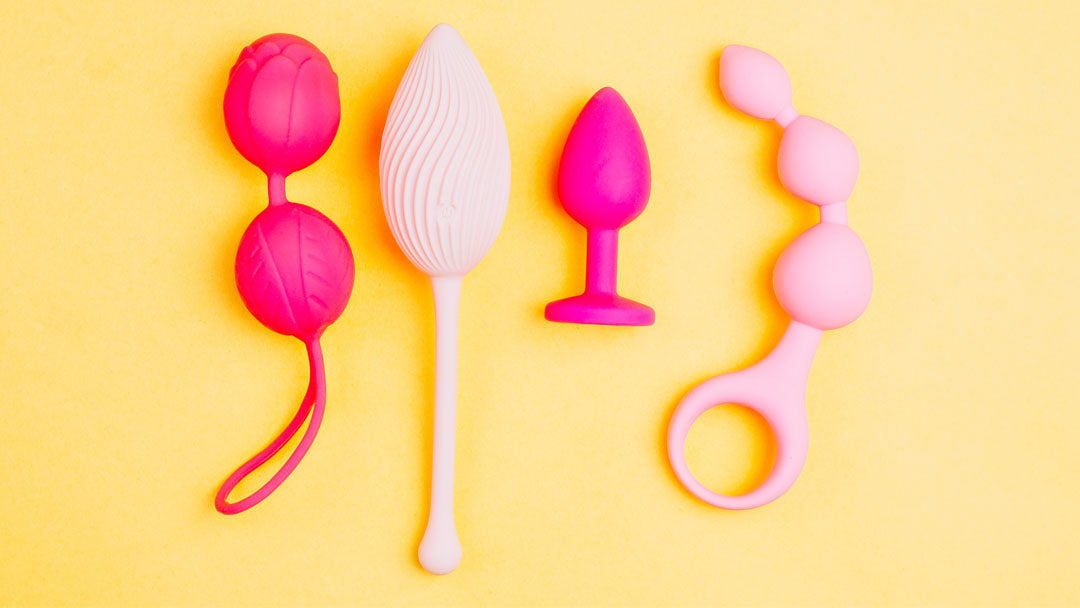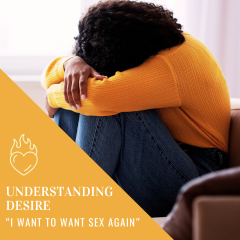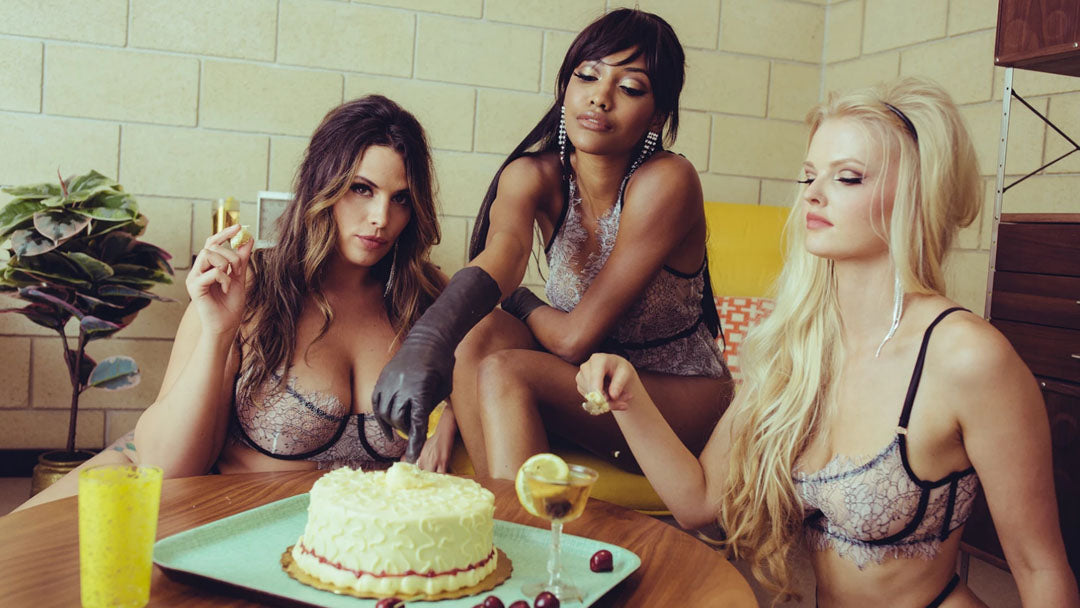Q&A: Real Talk about Bisexuality and Visibility
Welcome back to our ongoing Q&A series! We started writing these in our weekly email blasts to address questions on a variety of topics that we commonly hear from our customers. Eventually, we decided that we wanted to make them an evergreen educational resource, and thus this series was born. Check out our Q&A category under Lotus Blooms Life in the menu for more posts in the series.
This week is Bisexual Awareness Week, with the 23rd as Bi Visibility Day. Many of our friends and fans identify as bisexual or bi-curious, and we thought we'd celebrate the week and honor them (and some of us!) with a Q&A to help clear up some common misunderstandings about bisexuality and fight back against bi erasure.
What's the difference between bisexual and pansexual?
Mostly, it's a matter of identity preference. "Pansexual" is a more recent term that means being sexually attracted to all genders (or that gender doesn't factor into sexual attraction). Some people prefer it because it feels more gender-inclusive to them. "Queer" is often commonly used by people who are into all genders, for the same reason.
"Bisexual" is the term of choice for others because, historically, bisexuality has been erased and treated as not "real" or not serious, and they feel it's important to embrace and celebrate that identity. It's somewhat controversial, because some folks believe that the prefix "bi" either implies that there are only two genders or reinforces gender as a spectrum between "man" and "woman", while others argue that "bi" means "attracted to my gender and also different genders" and that it's being unfairly attacked as a continuation of the queer and straight community's hostility to bi people.
However, we do need to acknowledge that in decades past when trans and nonbinary folks were even more marginalized and excluded, people did use "bisexual" to mean "attracted to both men and women" in a trans/NB-exclusionary way-- and some still do now. Whether we ultimately decide that the word "bisexual" has truly been updated or that we need to move towards newer language, it's still worth unpacking and dismantling the injustices on both sides of the argument.
What is bi erasure? I keep hearing about it, but I don't really get it.
Bi erasure is a problem that's existed at least as long as the modern concept of bisexuality (we'll leave aside historical ideas about sexual attraction, which are complex and nuanced in ways very foreign to us). It refers to the tendency of both straight and gay people to treat bisexuality as a phase, a cop-out, an excuse, or a total fiction.
Some of the most painful attitudes that bisexual folks have to contend with are ones that suggest that they're lying to themselves or to others or that they don't understand or accept their own sexuality. Bisexual men are often assumed to be closeted gays who are afraid to come out. Bisexual women are often assumed to be putting on a sexy act for the benefit of the straight men around them. All bisexuals are often told that they're just "experimenting" or that they're being selfish by not committing to one "side" or the other.
It gets worse if a bisexual person is in a partnership or marriage that looks heterosexual from the outside; people assume that the bisexual partner has always been straight or that they're no longer bisexual because they "chose" straightness. On the one hand, it's a level of privilege to pass in mainstream society that does offer advantages. On the other, bisexuals would almost always gladly trade that privilege for visibility, and feel grief and loss at being shut out of queer spaces where they no longer feel accepted and may be viewed as "traitors".
The best way to combat bi erasure is simply to never make assumptions about anyone's sexuality, and to embrace their stated identity without demanding proof that they're "really" bi. It also helps for bi allies to call out instances of erasure, create and defend inclusive spaces and language, and stand up for the visibility of bisexuals when their reality is disregarded.
What is it like to be bisexual?
Hey, what a great opportunity to talk about what's great about bisexuality and not just what sucks! As you can guess from the other questions, there are a lot of stigmas and biases (not to mention doubt and internalized loathing) that bi folks often have to deal with. It's tiring to be considered greedy, sleazy, confused, flaky, hypersexual, and disloyal, and to be hated or fetishized by straights for being too queer and ostracized by gays for not being queer enough.
But let's leave that aside. Honestly, being bisexual is awesome! It means that when we connect with a new person (if we're single or available), we get to enjoy the anticipation of discovering where that connection will lead, because it could go anywhere. It means that we get to experience the delight of finding such a wide variety of people attractive. It means we might get to spend our date nights with someone we love who likes the same kind of gender expressions that we do. It means we might get to become good at giving pleasure to very different bodies.
At the same time, it's not that different from how anyone else lives. We might have a lot of sex, or none at all. We might date different genders, or end up dating only one (or even get into a monogamous marriage before we realize we're bi). We have jobs and run errands, take care of kids and pets, get involved in our communities, are attracted to some people and not others, and probably wish we got more naps. Being bisexual is a totally unique experience individual to each one of us who lives it, but chances are good that none of us would trade it for anything.
I'm bi-curious but I've only been in heterosexual relationships. How do I know if I'm really bi? Is it okay to sleep with another gender if I'm not sure I'm bisexual yet?
We're really glad you asked (honest!) This is something that a lot of folks struggle with, and it's a good thing to be concerned about not exploiting someone else to test drive your sexuality. So, we can't tell you whether or not you're bi. You might just have fantasies or a broad sense of what's attractive to you, but ultimately consider yourself straight. You could very well be bi-- if you think you are, enough to be wondering about it a lot, it's probable that you are.
There are a couple of things to keep in mind. First, you don't need "proof" that you're bi by having queer sex. Did anyone question whether you were really straight before you had heterosexual sex for the first time? It's totally okay to identify as bi just because you know your own heart, even if you only ever have relationships that look hetero. Your identity is your decision alone. Second, it's also okay to be straight but find other genders attractive, or to think of yourself as "heteroflexible". Sexuality is complex and it can take a while to figure out.
Third, if you do try out bisexual relationships, keep in mind that the first sex you have with someone is rarely the best sex you'll have with them, and also that it takes time to learn your way around different bodies. It doesn't make you "not really bi" if you didn't like the sex, felt weird about dealing with different genitals, or didn't feel like you were good at it. You didn't fail at bisexuality, we promise! You don't have to try again if you don't want to, but don't shut yourself down out of shame either.
As for having queer sex for the first time, you should definitely be honest with your potential partner about it. Let them know if you're nervous or feeling unsure about your sexuality-- and absolutely let them know if you're looking for no-strings sex. Some folks won't be into that, but it'll give them a chance to opt out before feelings get hurt. And there are plenty of people who actually enjoy casual hookups with newbie bisexuals, and will be very into the idea! It's only a bad thing if you're treating your partner like a toy instead of a person, or letting them believe they can have a relationship with you when you only want a one-night stand. Good luck and have a wonderful time exploring who you are!
Want to get these Q&A's when they're hot off the press? Sign up for our mailing list and you'll be able to read them when we first publish them in our weekly emails. Have a question of your own that you'd like us to address? Comment here or use our contact page!




Comments